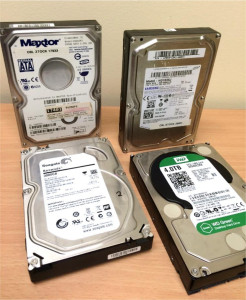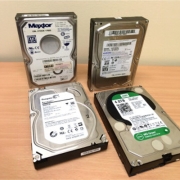What’s the Best Method for Backing Up?
As data recovery experts, we know the best way to keep your files safe and easy to retrieve – regular backups! We also know that backing up your computer sounds a little like gobbledegook to some, but it doesn’t have to be that way.
We’re going to share our knowledge of the best ways to back up your data, be it from your laptop, PC, tablet or smartphone.
Data Backup is saving your data to a separate server or device, to ensure you can always retrieve it no matter what happens to your computer. There are multiple ways to do this, most of which are simple to do, keep on top of and cost-effective, too.
The importance of regular data backup cannot be overstated – that goes for big multinational corporations, down to single users at home. Regular and reliable data back up ensures:
• You never lose your data.
• Your data is safe even if you’ve been hit by ransomware or other malware.
• If your computer breaks, you can access your important files from a different one, where ever you are.
• You should never need the services of data recovery specialists!
Different Back-up Methods
There are three main back-up methods that work well and are easy to perform.
External Hard Drive
The first of the three is to buy an external hard drive and regularly connect it to your devices to save any new files and data you’ve created and want to keep safe. Thanks to intense competition, it’s possible to buy good quality and reliable hard drives for a reasonable price. And, once you done your initial back up, you should only need to connect the hard drive to your computer with a USB cable and hit start to repeat the process.
The main potential problem with this method is your data is irretrievable if the hard drive is lost, stolen or badly damaged.

Internet Backup
Many storage companies offer online internet storage and regular backups to ensure all the data you need is safe and available to you. This method means your data is always available when you’re online and easy for you to retrieve. Provided you opt for a well-managed company, your data will be safe from loss, theft and damage.
But, you will likely have to pay a monthly fee or a special offer, annual charge.
Cloud Storage
While not strictly backup, it’s as near to it as most people want it to be and keeps your data safe and retrievable. The best-known cloud storage companies – iCloud, Dropbox and Googledrive – to name but a few, tend to offer some storage to subscribers for free. That storage is typically only a few gigabytes and you’ll need to pay for more space. While your data won’t reside online, but on a server in an un-specified country, it’s still simple to save your data – it’s often done automatically – and also, easy to get back. The main con here is paying for large amounts of server space.
The Best Backup Method is any two, or even all of the above! There is typically some cost associated with all the best data storage and backup, particularly when you’re looking at larger amounts of space. When you’re paying for backup and data storage space, be sure you’re using a company you trust and are getting good value for money.
Opt for the methods you’re most comfortable with in terms of performing the backup, accessing the files in your moment of need and on a cost level too.


